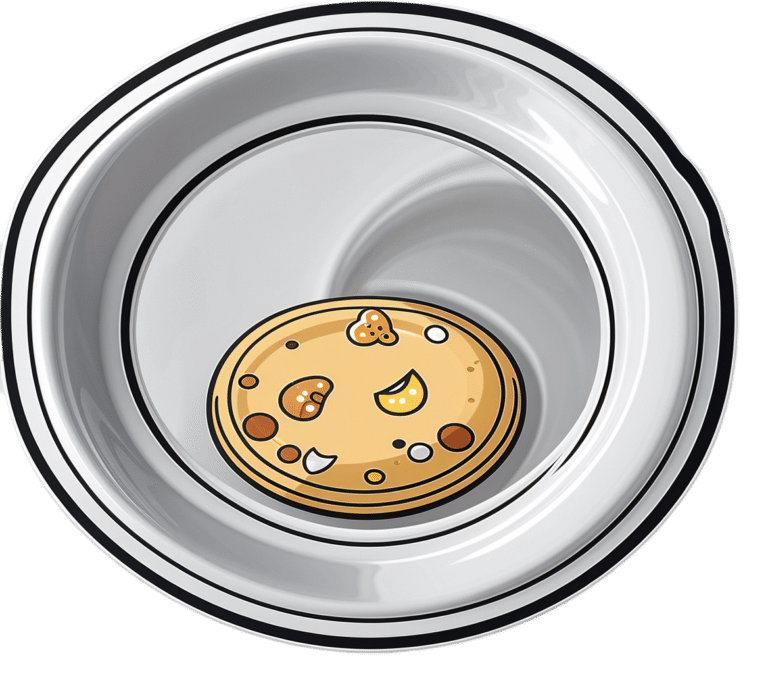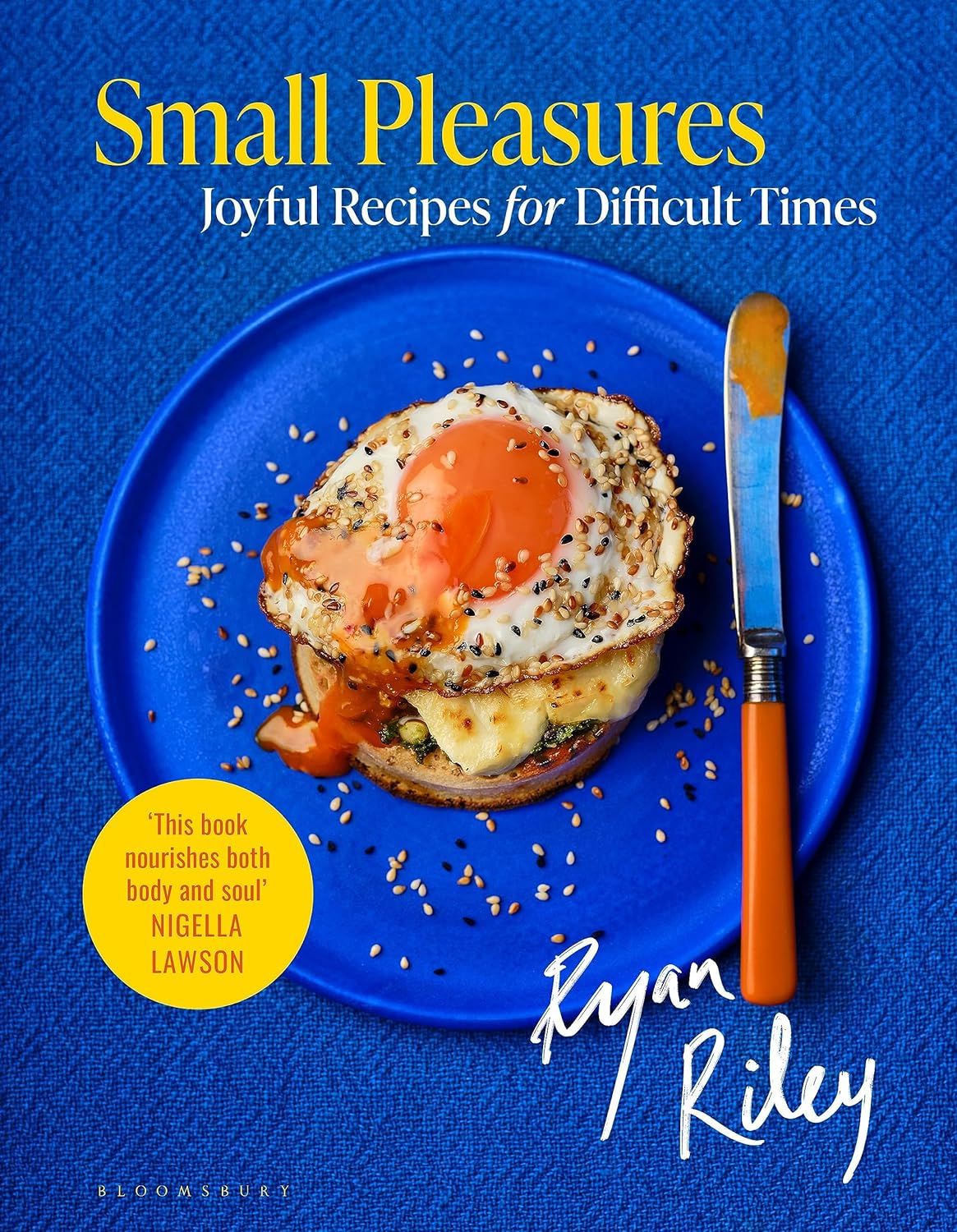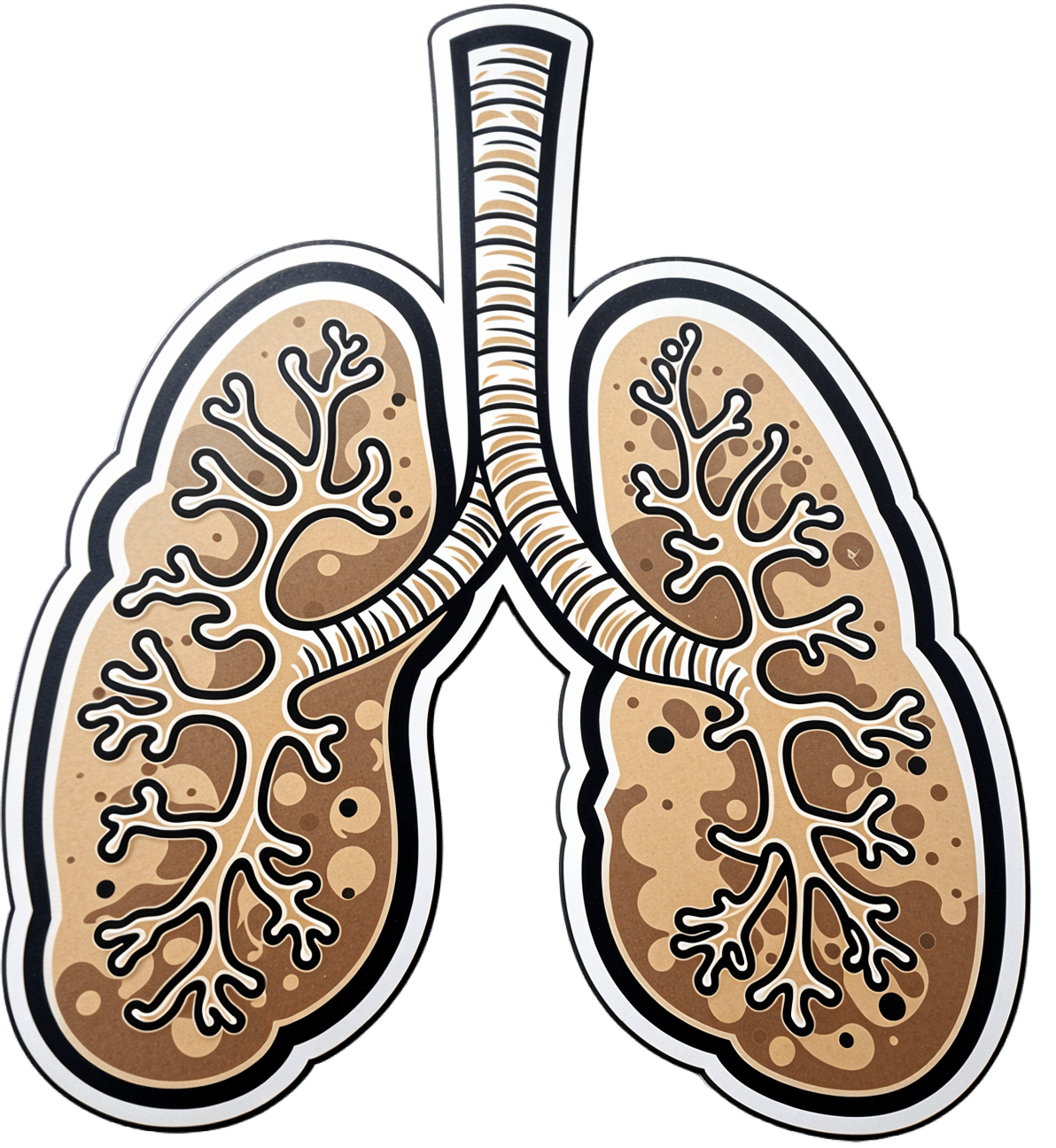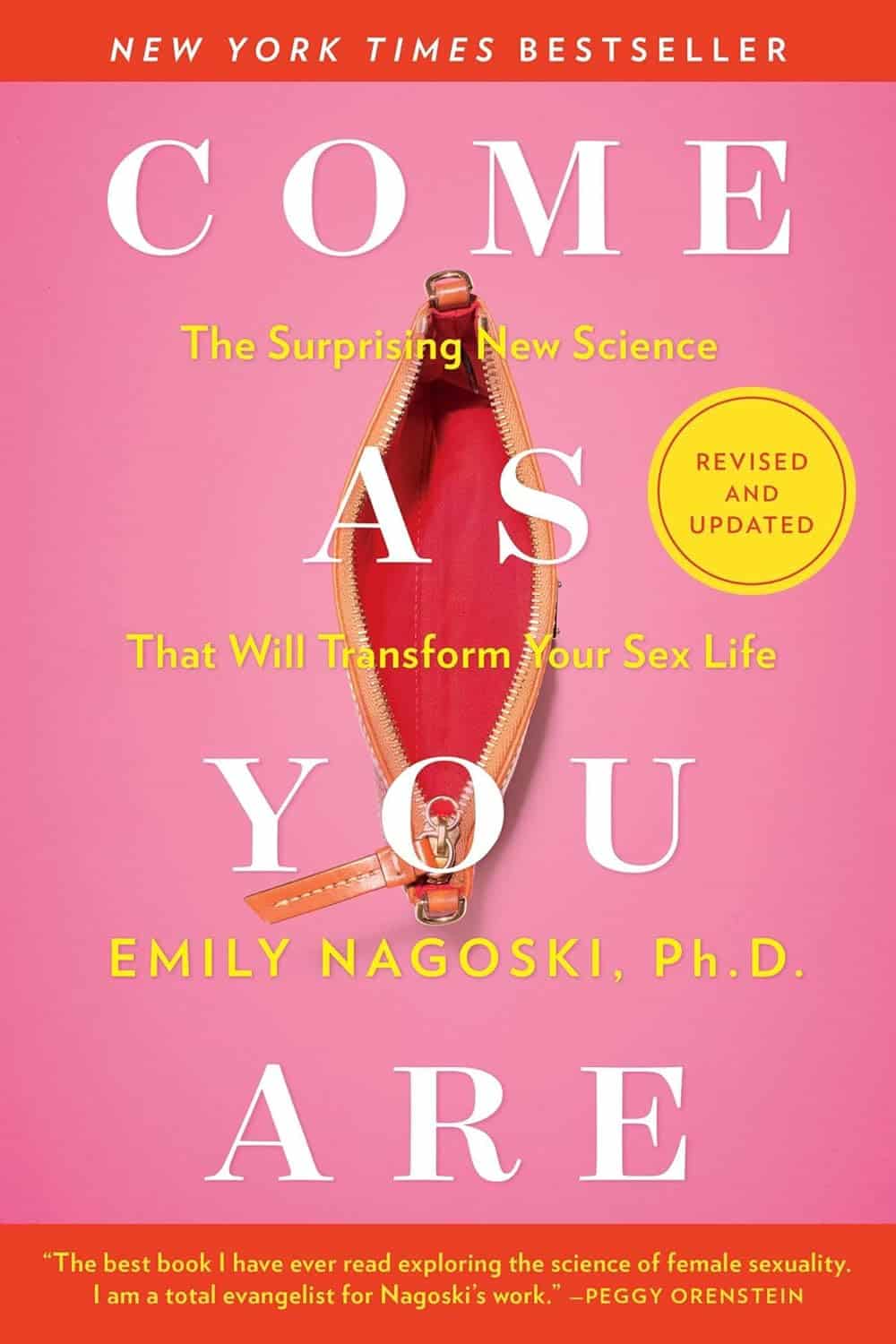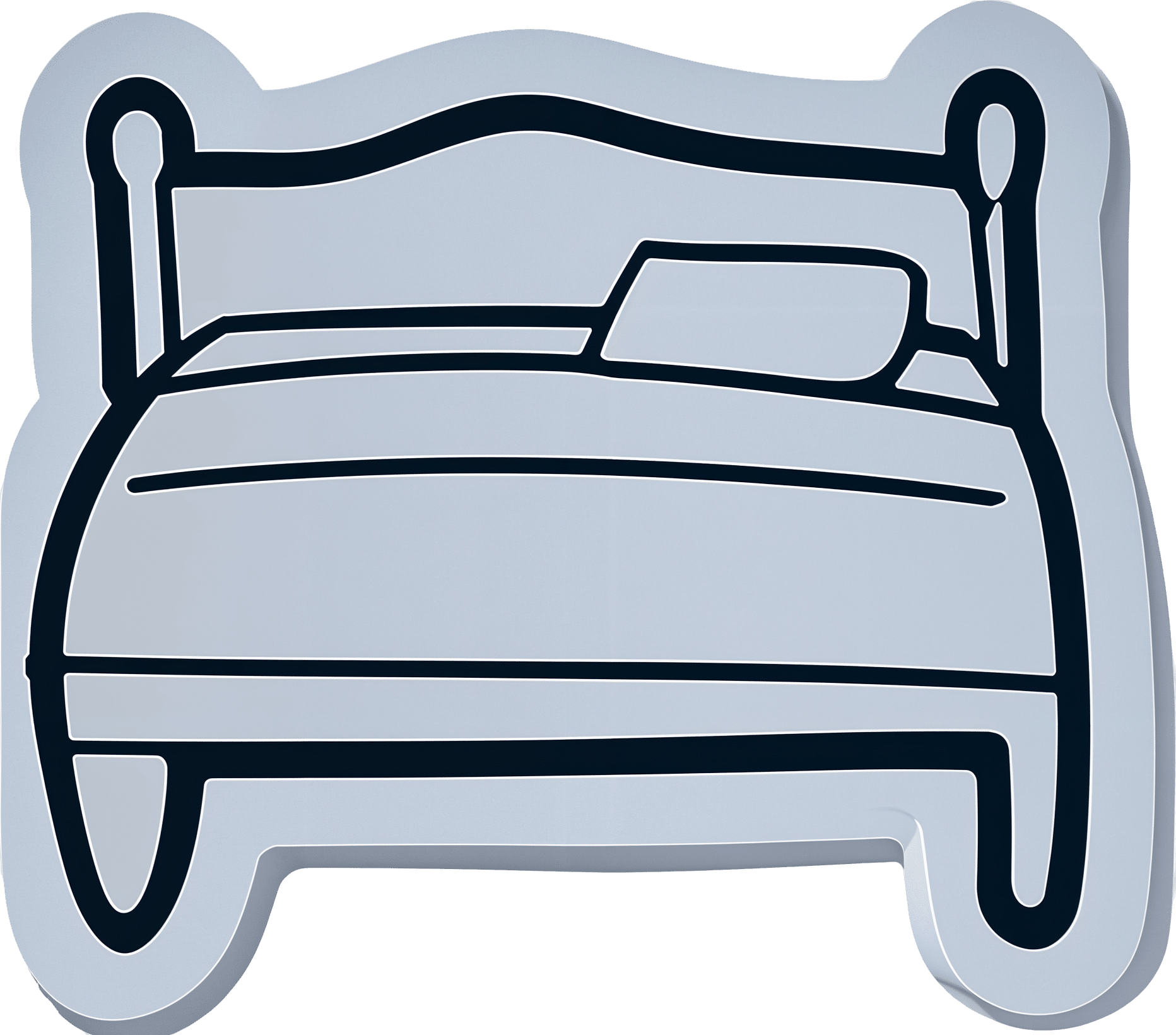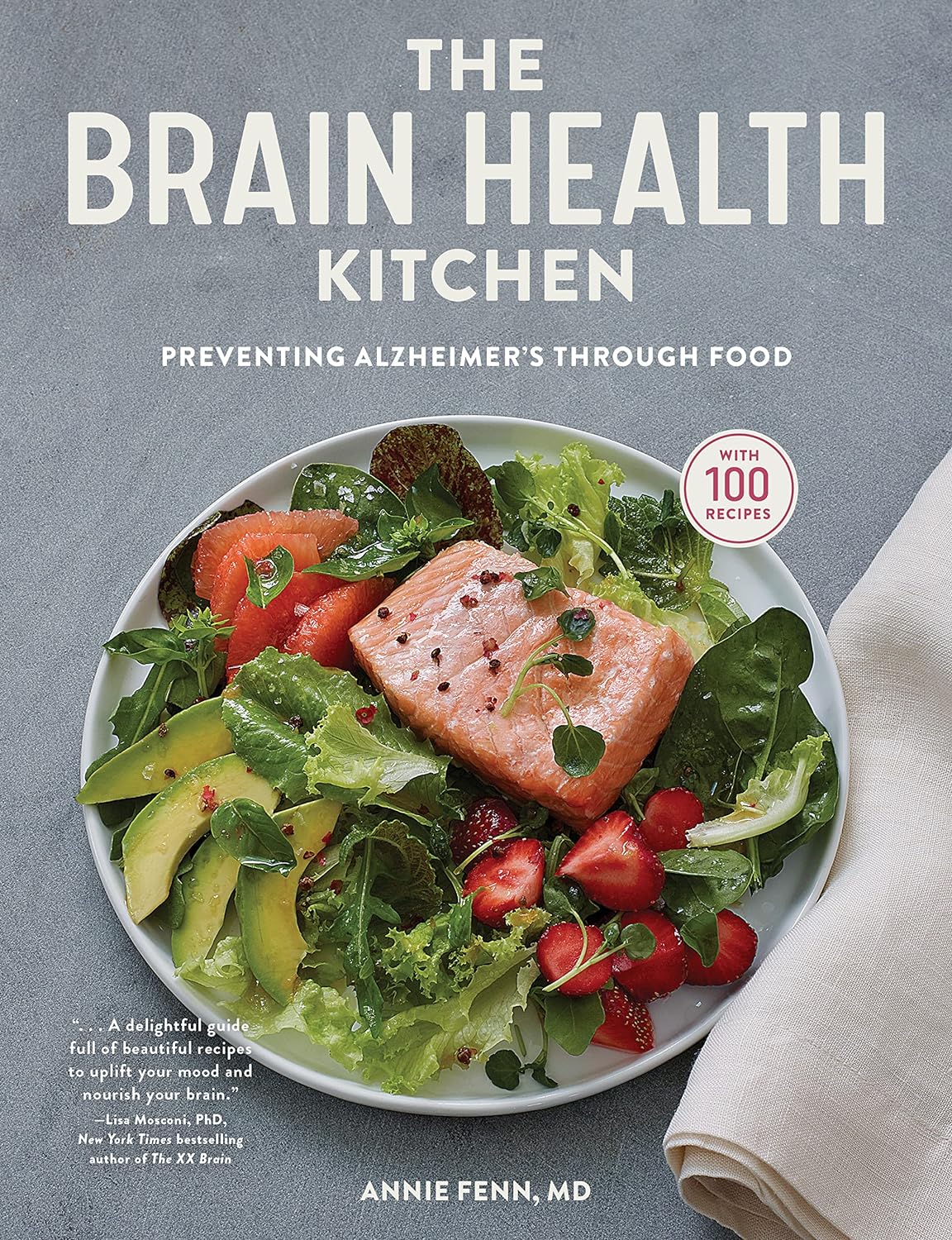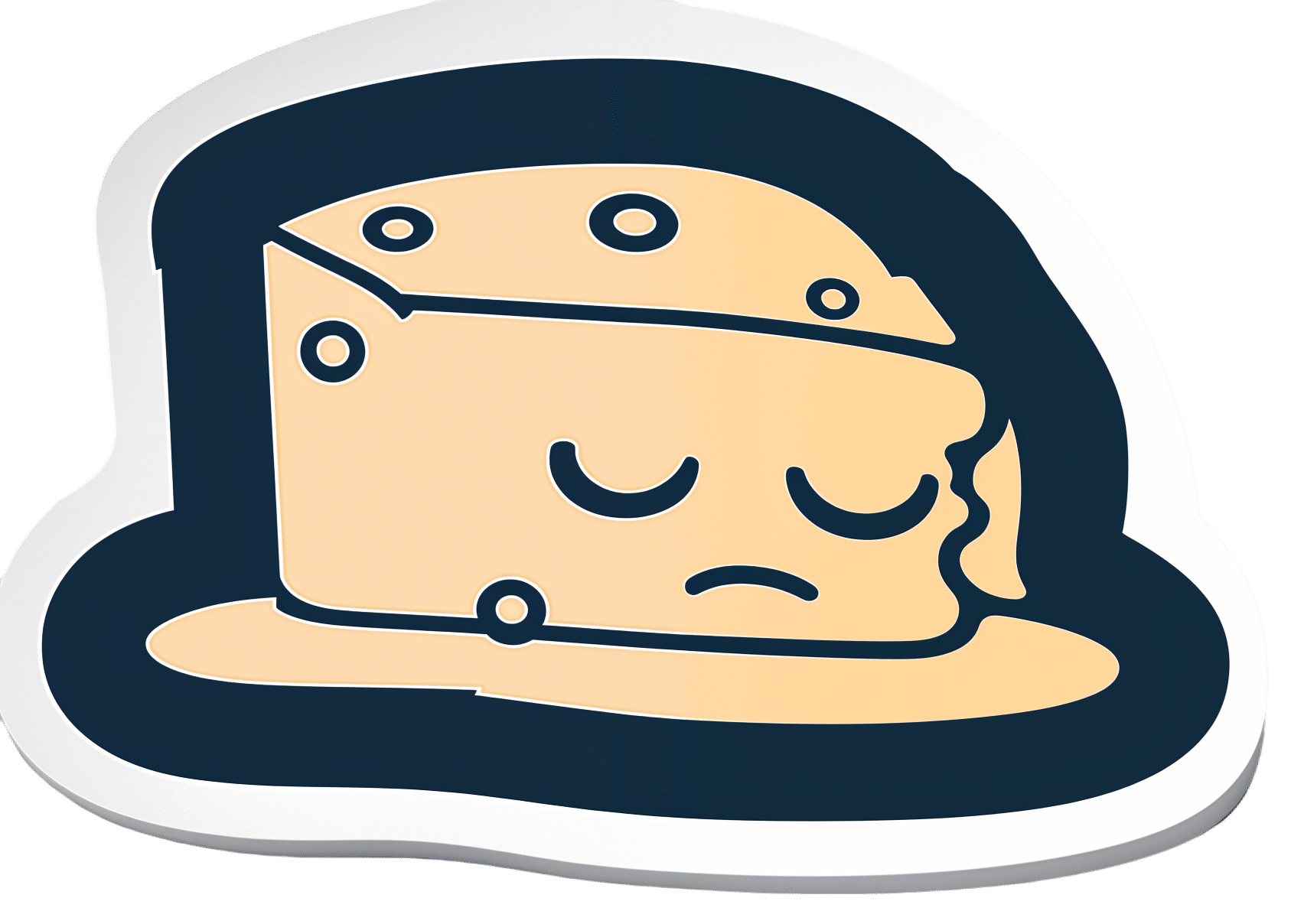
Sweet Dreams Are Made Of Cheese (Or Are They?)
10almonds is reader-supported. We may, at no cost to you, receive a portion of sales if you purchase a product through a link in this article.
It’s Q&A Day at 10almonds!
Have a question or a request? You can always hit “reply” to any of our emails, or use the feedback widget at the bottom!
In cases where we’ve already covered something, we might link to what we wrote before, but will always be happy to revisit any of our topics again in the future too—there’s always more to say!
As ever: if the question/request can be answered briefly, we’ll do it here in our Q&A Thursday edition. If not, we’ll make a main feature of it shortly afterwards!
So, no question/request too big or small
❝In order to lose a little weight I have cut out cheese from my diet – and am finding that I am sleeping better. Would be interested in your views on cheese and sleep, and whether some types of cheese are worse for sleep than others. I don’t want to give up cheese entirely!❞
In principle, there’s nothing in cheese that, biochemically, should impair sleep. If anything, its tryptophan content could aid good sleep.
Tryptophan is found in many foods, including cheese, which (of common foods, anyway), for example cheddar cheese ranks second only to pumpkin seeds in tryptophan content.
Tryptophan can be converted by the body into 5-HTP, which you’ve maybe seen sold as a supplement. Its full name is 5-hydroxytryptophan.
5-HTP can, in turn, be used to make melatonin and/or serotonin. Which of those you will get more of, depends on what your body is being cued to do by ambient light/darkness, and other environmental cues.
If you are having cheese and then checking your phone, for instance, or otherwise hanging out where there are white/blue lights, then your body may dutifully convert the tryptophan into serotonin (calm wakefulness) instead of melatonin (drowsiness and sleep).
In short: the cheese will (in terms of this biochemical pathway, anyway) augment some sleep-inducing or wakefulness-inducing cues, depending on which are available.
You may be wondering: what about casein?
Casein is oft-touted as producing deep sleep, or disturbed sleep, or vivid dreams, or bad dreams. There’s no science to back any of this up, though the following research review is fascinating:
Dreams of the Rarebit Fiend: food and diet as instigators of bizarre and disturbing dreams
(it largely supports the null hypothesis of “not a causal factor” but does look at the many more likely alternative explanations, ranging from associated actually casual factors (such as alcohol and caffeine) and placebo/nocebo effect)
Finally, simple digestive issues may be the real thing at hand:
Worth noting that around two thirds of all people, including those who regularly enjoy dairy products, have some degree of lactose intolerance:
Lactose Intolerance in Adults: Biological Mechanism and Dietary Management
So, in terms of what cheese may be better/worse for you in this context, you might try experimenting with lactose-free cheese, which will help you identify whether that was the issue!
Don’t Forget…
Did you arrive here from our newsletter? Don’t forget to return to the email to continue learning!
Recommended
Learn to Age Gracefully
Join the 98k+ American women taking control of their health & aging with our 100% free (and fun!) daily emails:
-
To Err Is Human; To Forgive, Healthy
10almonds is reader-supported. We may, at no cost to you, receive a portion of sales if you purchase a product through a link in this article.
How To Forgive (And Why)
There’s an old saying that holding onto a grudge is like drinking poison and expecting the other person to die. If only it were so simple and easy as just choosing to let go!
But it’s not, is it?
When people have wronged us and/or wronged our loved ones, it’s hard to forgive, especially if they have not changed. For that matter, it can be hard to forgive ourselves for mistakes that we made, too.
Either way, “drinking that poison” can be close to literal, in terms of what harboring such anger and resentment can do for our cortisol levels.
So, what to do about it?
If you have a dialogue with the person, our previous article on communication may help a lot.
If you don’t, there are various other angles that can be taken:
The Unsent Letter
You can even send it, if you like, but it’s not the point here. The idea is to write to the person, expressing your grievances. But, (as per the above-linked article on communication) try to focus at least as much on your feelings as their actions. “When you did/said x, I felt y”, etc.
This is important for helping you process your feelings. If you send the letter, it’s also important for the other person to be able to understand your feelings.
Sometimes, we feel the things we do so strongly because we don’t have an outlet for them. Pouring out our emotions in such a fashion, on the other hand, means (to labor the metaphor) they’re no longer bottled up. Even just in and of itself, that can provide us a lot of relief.
And when we the negative emotions are no longer such high pressure, it can be easier to let go of them.
Mindfulness
Following on from the above idea, a good strategy can be simply sitting and feeling everything you need to feel, noticing it without judgement, like a curious observer.
Sometimes what we need is just to be heard, and that starts with hearing ourselves.
Compassion
There’s a Buddhist exercise that involves actively feeling compassion for three people: a loved one, a stranger, and an enemy. Many people report that it’s actually harder to feel compassion for a random stranger, than an enemy. Why? Because we don’t know them; we don’t know what’s good and bad about them in our estimation.
If you’re reading this because you want to be able to gain the peace of being able to forgive someone (even if that someone is yourself), then in at least some respect right now, that person is in the “enemy” category. So how do we unpack that?
To err is human. Everybody screws up sometimes. And also, everyone has a reason (or a complex of reasons) for acting the way they do. This does not mean that those reasons excuse the behavior, but it can explain it.
You don’t get angry at a storm for soaking you through. Even if you might not understand the physics of it in the way a meteorologist might, you understand that there were things that led to that, and you were just in the wrong place at the wrong time.
So why do we get angry at someone else for wronging us? Even if we might not understand the personal background of it in the way their psychologist or therapist might, we (hopefully) understand that there were things that caused them to be the way they were, and we were just in the wrong place at the wrong time.
And ourselves? We probably know, when we made a mistake, why we made it. Maybe we were afraid, insecure, reactive, forgetful, or too focused on some other thing. Whatever it was, we did our best at the time and, apparently, our best wasn’t as good as we’d like.
If we didn’t deserve forgiveness, we wouldn’t be critical of our past selves in the first place.
And, the science is very clear that it’s important for our health for other reasons besides cortisol management, too.
And as for others? They did the best they knew how. Maybe they were afraid, insecure, reactive, forgetful, or too focused on some other thing. Same story, different character.
Remembering that can be key to “accepting the apology we never received”.
Forgiving without forgetting
Developing the ability to forgive is a useful tool for our own mental health. It doesn’t mean we must or even should make ourselves a doormat.
“I forgive you” does not have to mean a clean slate; it means remembering that the thing happened, and just not holding on to the anger/resentment associated with it.
It may be water under the bridge now, but it might have been a devastatingly destructive wave at the time, and continuing to acknowledge truth that is sensible. Just, from a position of peace now, hopefully.
Share This Post
-
Small Pleasures – by Ryan Riley
10almonds is reader-supported. We may, at no cost to you, receive a portion of sales if you purchase a product through a link in this article.
When Hippocrates said “let food be thy medicine, and let medicine be thy food”, he may or may not have had this book in mind.
In terms of healthiness, this one’s not the very most nutritionist-approved recipe book we’ve ever reviewed. It’s not bad, to be clear!
But the physical health aspect is secondary to the mental health aspects, in this one, as you’ll see. And as we say, “mental health is also just health”.
The book is divided into three sections:
- Comfort—for when you feel at your worst, for when eating is a chore, for when something familiar and reassuring will bring you solace. Here we find flavor and simplicity; pastas, eggs, stews, potato dishes, and the like.
- Restoration—for when your energy needs reawakening. Here we find flavors fresh and tangy, enlivening and bright. Things to make you feel alive.
- Pleasure—while there’s little in the way of health-food here, the author describes the dishes in this section as “a love letter to yourself; they tell you that you’re special as you ready yourself to return to the world”.
And sometimes, just sometimes, we probably all need a little of that.
Bottom line: if you’d like to bring a little more joie de vivre to your cuisine, this book can do that.
Click here to check out Small Pleasures, and rekindle joy in your kitchen!
Share This Post
-
Pneumonia: Prevention Is Better Than Cure
10almonds is reader-supported. We may, at no cost to you, receive a portion of sales if you purchase a product through a link in this article.
Pneumonia: What We Can & Can’t Do About It
Pneumonia is a significant killer of persons over the age of 65, with the risk increasing with age after that, rising very sharply around the age of 85:
While pneumonia is treatable, especially in young healthy adults, the risks get more severe in the older age brackets, and it’s often the case that someone goes into hospital with one thing, then develops pneumonia, which the person was already not in good physical shape to fight, because of whatever hospitalized them in the first place:
American Lung Association | Pneumonia Treatment and Recovery
Other risk factors besides age
There are a lot of things that can increase our risk factor for pneumonia; they mainly fall into the following categories:
- Autoimmune diseases
- Other diseases of the immune system (e.g. HIV)
- Medication-mediated immunosuppression (e.g. after an organ transplant)
- Chronic lung diseases (e.g. asthma, COPD, Long Covid, emphysema, etc)
- Other serious health conditions ← we know this one’s broad, but it encompasses such things as diabetes, heart disease, and cancer
See also:
Why Chronic Obstructive Pulmonary Disease (COPD) Is More Likely Than You Think
Things we can do about it
When it comes to risks, we can’t do much about our age and some of the other above factors, but there are other things we can do to reduce our risk, including:
- Get vaccinated against pneumonia if you are over 65 and/or have one of the aforementioned risk factors. This is not perfect (it only reduces the risk for certain kinds of infection) and may not be advisable for everyone (like most vaccines, it can put the body through its paces a bit after taking it), so speak with your own doctor about this, of course.
- See also: Vaccine Mythbusting
- Avoid contagion. While pneumonia itself is not spread person-to-person, it is caused by bacteria or viruses (there are numerous kinds) that are opportunistic and often become a secondary infection when the immune system is already busy with the first one. So, if possible avoid being in confined spaces with many people, and do wash your hands regularly (as a lot of germs are transferred that way and can get into the respiratory tract because you touched your face or such).
- See also: The Truth About Handwashing
- If you have a cold, or flu, or other respiratory infection, take it seriously, rest well, drink fluids, get good immune-boosting nutrients. There’s no such thing as “just a cold”; not anymore.
- Look after your general health too—health doesn’t exist in a vacuum, and nor does disease. Every part of us affects every other part of us, so anything that can be in good order, you want to be in good order.
This last one, by the way? It’s an important reminder that while some diseases (such as some of the respiratory infections that can precede pneumonia) are seasonal, good health isn’t.
We need to take care of our health as best we can every day along the way, because we never know when something could change.
Want to do more?
Check out: Seven Things To Do For Good Lung Health!
Take care!
Share This Post
Related Posts
-
Come As You Are – by Dr. Emily Nagoski
10almonds is reader-supported. We may, at no cost to you, receive a portion of sales if you purchase a product through a link in this article.
We’ve all heard the jokes, things like: Q: “Why is the clitoris like Antarctica?” A: “Most men know it’s there; most don’t give a damn”
But… How much do people, in general, really know about the anatomy and physiology of sexual function? Usually very little, but often without knowing how little we know.
This book looks to change that. Geared to a female audience, but almost everyone will gain useful knowledge from this.
The writing style is very easy-to-read, and there are “tl;dr” summaries for those who prefer to skim for relevant information in this rather sizeable (400 pages) tome.
Yes, that’s “what most people don’t know”. Four. Hundred. Pages.
We recommend reading it. You can thank us later!
Don’t Forget…
Did you arrive here from our newsletter? Don’t forget to return to the email to continue learning!
Learn to Age Gracefully
Join the 98k+ American women taking control of their health & aging with our 100% free (and fun!) daily emails:
-
What Grief Does To Your Body (And How To Manage It)
10almonds is reader-supported. We may, at no cost to you, receive a portion of sales if you purchase a product through a link in this article.
What Grief Does To The Body (And How To Manage It)
In life, we will almost all lose loved ones and suffer bereavement. For most people, this starts with grandparents, eventually moves to parents, and then people our own generation; partners, siblings, close friends. And of course, sometimes and perhaps most devastatingly, we can lose people younger than ourselves.
For something that almost everyone suffers, there is often very little in the way of preparation given beforehand, and afterwards, a condolences card is nice but can’t do a lot for our mental health.
And with mental health, our physical health can go too, if we very understandably neglect it at such a time.
So, how to survive devastating loss, and come out the other side, hopefully thriving? It seems like a tall order indeed.
First, the foundations:
You’re probably familiar with the stages of grief. In their most commonly-presented form, they are:
- Denial
- Anger
- Bargaining
- Depression
- Acceptance
You’ve probably also heard/read that we won’t always go through them in order, and also that grief is deeply personal and proceeds on its own timescale.
It is generally considered healthy to go through them.
What do they look like?
Naturally this can vary a lot from person to person, but examples in the case of bereavement could be:
- Denial: “This surely has not really happened; I’ll carry on as though it hasn’t”
- Anger: “Why didn’t I do xyz differently while I had the chance?!”
- Bargaining: “I will do such-and-such in their honor, and this will be a way of expressing the love I wish I could give them in a way they could receive”
- Depression: “What is the point of me without them? The sooner I join them, the better.”
- Acceptance: “I was so lucky that we had the time together that we did, and enriched each other’s lives while we could”
We can speedrun these or we can get stuck on one for years. We can bounce back and forth. We can think we’re at acceptance, and then a previous stage will hit us like a tonne of bricks.
What if we don’t?
Assuming that our lost loved one was indeed a loved one (as opposed to someone we are merely societally expected to mourn), then failing to process that grief will tend to have a big impact on our life—and health. These health problems can include:
As you can see, three out of five of those can result in death. The other two aren’t great either. So why isn’t this taken more seriously as a matter of health?
Death is, ironically, considered something we “just have to live with”.
But how?
Coping strategies
You’ll note that most of the stages of grief are not enjoyable per se. For this reason, it’s common to try to avoid them—hence denial usually being first.
But, that is like not getting a lump checked out because you don’t want a cancer diagnosis. The emotional reasoning is understandable, but it’s ultimately self-destructive.
First, have a plan. If a death is foreseen, you can even work out this plan together.
But even if that time has now passed, it’s “better late than never” to make a plan for looking after yourself, e.g:
- How you will try to get enough sleep (tricky, but sincerely try)
- How you will remember to eat (and ideally, healthily)
- How you will still get exercise (a walk in the park is fine; see some greenery and get some sunlight)
- How you will avoid self-destructive urges (from indirect, e.g. drinking, to direct, e.g. suicidality)
- How you will keep up with the other things important in your life (work, friends, family)
- How you will actively work to process your grief (e.g. journaling, or perhaps grief counselling)
Some previous articles of ours that may help:
- How To Keep On Keeping On ← this is about looking after general health when motivation is low
- The Mental Health First-Aid You’ll Hopefully Never Need ← this is about managing depression
- How To Stay Alive (When You Really Don’t Want To) ← this is about managing suicidality
- Life After Death? (Your Life; A Loved One’s Death) ← this is about bereavement and romance
If it works, it works
If we are all unique, then any relationship between any two people is uniqueness squared. Little wonder, then, that our grief may be unique too. And it can be complicated further:
- Sometimes we had a complicated relationship with someone
- Sometimes the circumstances of their death were complicated
There is, for that matter, such a thing as “complicated grief”:
Read more: Complicated grief and prolonged grief disorder (Medical News Today)
We also previously reviewed a book on “ambiguous loss”, exploring grieving when we cannot grieve in the normal way because someone is gone and/but/maybe not gone.
For example, if someone is in a long-term coma from which they may never recover, or if they are missing-presumed-dead. Those kinds of situations are complicated too.
Unusual circumstances may call for unusual coping strategies, so how can we discern what is healthy and what isn’t?
The litmus test is: is it enabling you to continue going about your life in a way that allows you to fulfil your internal personal aspirations and external social responsibilities? If so, it’s probably healthy.
Look after yourself. And if you can, tell your loved ones you love them today.
Don’t Forget…
Did you arrive here from our newsletter? Don’t forget to return to the email to continue learning!
Learn to Age Gracefully
Join the 98k+ American women taking control of their health & aging with our 100% free (and fun!) daily emails:
-
The Brain Health Kitchen – by Dr. Annie Fenn
10almonds is reader-supported. We may, at no cost to you, receive a portion of sales if you purchase a product through a link in this article.
This is a cookbook built around the MIND diet, which we talked about in our “Four Ways To Upgrade The Mediterranean Diet” article.
As such, it’s a top-tier gold-standard diet to be following for brain health, and having it as a book of recipes makes actually eating this way a lot easier!
The book does talk about the science first before getting to the recipes, so don’t worry, you won’t have to reverse engineer the dietary guidelines from the recipes; everything is explained well.
The recipes (of which there are 100) are diverse enough to be interesting without being so complicated as to be difficult. The ingredients are largely nutritional powerhouses, and most if not all can be found in your nearest reasonable-sized supermarket. Also, the recipes are (as you might reasonably expect), very plant-forward, but not entirely plant-based (as you might have guessed from the salmon on the front cover).
Bottom line: if you’d like to eat more healthily for your brain, but are a little stumped on what to do with the four ingredients you remember are brain-healthy, this book will help expand your horizons—not to mention your culinary repertoire!
Don’t Forget…
Did you arrive here from our newsletter? Don’t forget to return to the email to continue learning!
Learn to Age Gracefully
Join the 98k+ American women taking control of their health & aging with our 100% free (and fun!) daily emails:

